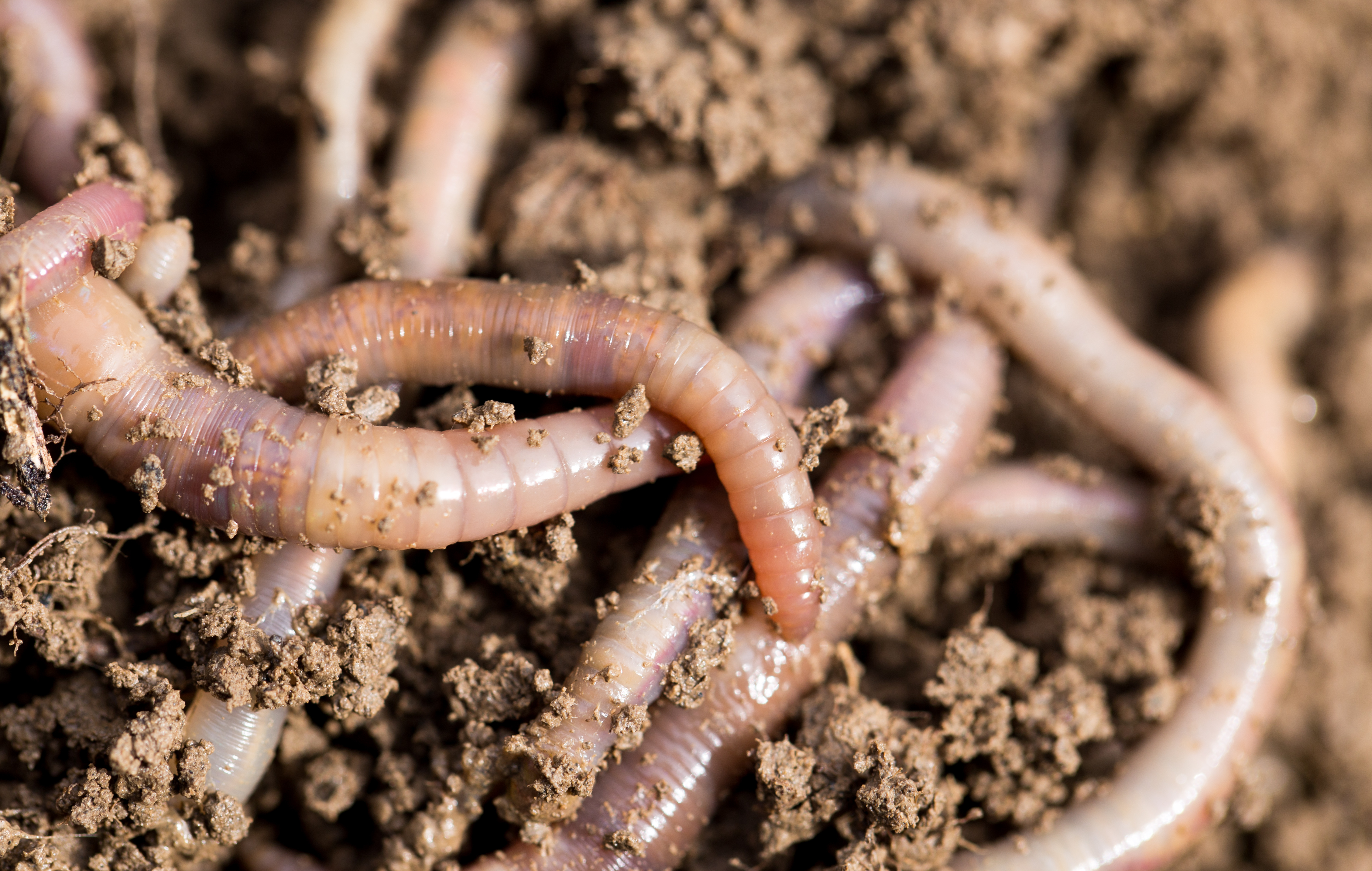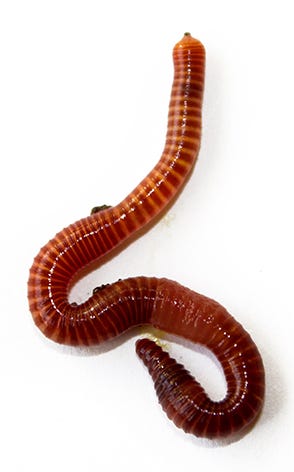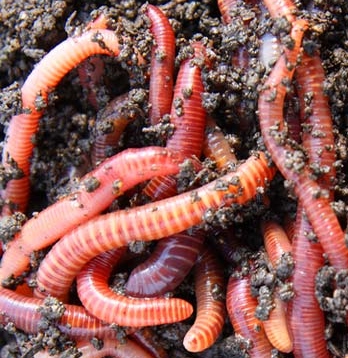Red Wiggler Worms Demystified: Unlocking the Tricks of Vermiculture for Greener Living and Nutrient-Rich Dirt
In the realm of sustainable practices for improving soil top quality and advertising eco-conscious living, red wiggler worms play a critical yet usually forgotten role. Red Wiggler Worms. Understanding the details of caring for these worms, optimizing their setting, and harnessing their castings can lead to a greener lifestyle and much healthier soil for plants to grow.
The Duty of Red Wiggler Worms
Red Wiggler worms play an essential function in composting systems by effectively breaking down natural issue right into nutrient-rich spreadings. These voracious eaters eat a selection of natural materials, such as cooking area scraps, yard waste, and paper products. As they feed, the worms' digestive system procedures break down the natural matter into a penalty, dark, and nutrient-dense product understood as worm spreadings or vermicompost.
The spreadings produced by Red Wiggler worms are very advantageous for dirt health and plant growth. They are abundant in necessary nutrients like phosphorus, potassium, and nitrogen, which are important for sustaining healthy plant development. Additionally, worm spreadings contain helpful microorganisms and enzymes that assist enhance soil structure, rise water retention, and improve nutrient uptake by plants.
Benefits of Vermicomposting

Additionally, vermicompost, the nutrient-rich final product of vermicomposting, acts as a superb natural fertilizer and soil conditioner. It enhances dirt framework, boosts soil oygenation, and boosts soil dampness retention. These residential properties add to healthier plants with stronger root systems and better resistance to conditions and parasites. Vermicompost additionally enhances the dirt with necessary nutrients like potassium, phosphorus, and nitrogen, advertising plant development and total dirt fertility.
Furthermore, vermicomposting assistances sustainable gardening techniques by giving a natural and chemical-free alternative to synthetic fertilizers. Red Wiggler Worms. This eco-friendly method not just improves the soil yet likewise helps in reducing dependence on harmful chemicals, promoting a greener and more sustainable way of gardening
Setting Up a Worm Container
When developing a worm container for vermicomposting, appropriate arrangement is important to make certain the success of the composting procedure. The initial action in setting up a worm container is selecting an ideal container.
After adding the bedding, present the red wiggler worms to the bin. The worms ought to after that be given with food scraps such as fruit and vegetable peels, coffee premises, and eggshells.
Frequently check the dampness degrees and temperature level in the worm bin to ensure optimal conditions for the worms. With proper arrangement and maintenance, the worm container will properly convert natural waste into nutrient-rich garden compost for your plants and garden.
Harvesting Worm Spreadings
To successfully accumulate nutrient-rich worm spreadings from your vermicomposting system, an organized harvesting method is important. When it comes time to gather the worm spreadings, there are a few vital actions to comply with to make sure a successful process. Quit including fresh food scraps to one side of the worm bin for a pair of my website weeks before collecting. This motivates the worms to migrate to the side with fresh bedding and food, making it much easier to dig the spreadings from the opposite side.

Troubleshooting Common Issues
Determining and attending to usual difficulties that may arise throughout the vermicomposting process is important for preserving a efficient and healthy worm bin. Adding excess food scraps can lead to an accumulation of dampness and level of acidity in the worm bin, possibly hurting the worms. Another problem is undesirable smells emanating from the worm bin.
Additionally, if the worm populace is declining or the worms appear undesirable, it can be due to ecological stress factors such as severe temperature levels or pH levels. Checking these factors and making needed changes is you could try these out essential for the wellness of the worms. By fixing these typical issues immediately, vermicomposters can ensure a effective and smooth vermicomposting procedure while keeping a flourishing worm population.

Verdict
In conclusion, red wiggler worms play an important function in vermiculture by damaging down organic matter right into nutrient-rich soil. The benefits of vermiculture include greener living and enhanced dirt high quality. Setting up a worm container is important for effective vermiculture, and gathering worm castings offers important garden compost for horticulture. By understanding and troubleshooting usual issues, individuals can open the tricks of vermiculture for lasting living and healthier soil.
As they feed, the worms' gastrointestinal processes damage down the organic matter into a fine, dark, and nutrient-dense product recognized click here for more info as worm castings or vermicompost.
The spreadings created by Red Wiggler worms are very useful for soil health and wellness and plant growth. Including excess food scraps can lead to a buildup of dampness and acidity in the worm container, possibly harming the worms.Additionally, if the worm population is decreasing or the worms show up unhealthy, it can be due to ecological stress factors such as severe temperatures or pH levels. Setting up a worm bin is essential for effective vermiculture, and gathering worm spreadings gives beneficial garden compost for horticulture.